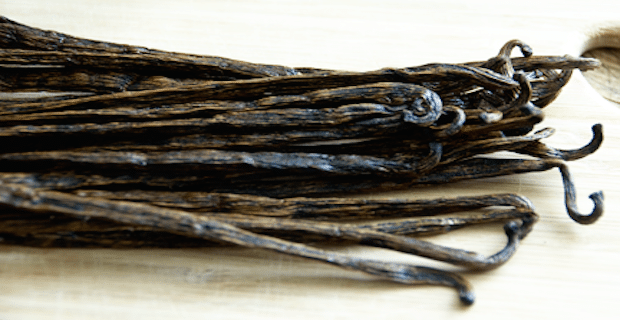
While the nation still battles over the right to label foods that contain GMOs, a new technology in the field of genetic engineering is emerging: synthetic biology.
“In essence, synthetic biology is about designing and building workhorse organisms that can make things more efficiently than nature,” reports NPR’s The Salt. The technology is already being used to manufacture drugs and fuels, and now, some foods are also being created from the technology, like a synbio vanillin, an artificial vanilla flavoring that may already be in some processed foods. (The manufacturers don’t legally have to disclose whether they’re using it or not.)
Read more about artificial flavors
“While genetically modified seeds typically contain genes from another organism that bestow a plant with a new defense mechanism, making synbio food involves taking genes from a plant and giving them to yeast to make the same compound the plant makes, but much more efficiently, via fermentation,” NPR explains.
Producers of synbio ingredients say there are huge advantages in synthetic biology, one of those reasons is that it doesn’t require a field to grow in, just a lab. And with global warming creating less than ideal farming conditions around the world, we may soon be in jeopardy of losing some of our beloved culinary. Synthetic biology could prevent those losses, or at least, give us a decent alternative.
And unlike GMOs, which are either genetically modified to kill pests (Bt corn and soy, for example), or they’re modified to withstand heavy applications of herbicides, which not only taint the food, but contaminate ground water, soil and the air. Herbicides and pesticides have also been connected to the widespread pollinator losses affecting honeybees and monarch butterflies.
There’s a big difference between eating a plant that’s been developed to kill bugs and a vanilla that’s been made in lab, and says The Salt, “besides potential advantages of flavor and price, some companies are betting that synbio foods could be far better for the planet, and thus marketable to conscientious consumers, if they get off the ground.”
Read more about the USDA's recent approval of new GMOs
But at least currently, the concept conjures imagery of the fish gene in the tomato, and the potential dangers of genetic modification. And besides, when there’s still pure vanilla beans to be had, why would we opt for anything else?
Image: mommyknows




